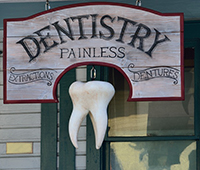 Health Reimbursement Accounts (HRAs) supplement your health insurance policy. Employer funded, they reimburse you for a variety of qualified medical expenses. Understand HRAs as you maximize your health insurance coverage.
Health Reimbursement Accounts (HRAs) supplement your health insurance policy. Employer funded, they reimburse you for a variety of qualified medical expenses. Understand HRAs as you maximize your health insurance coverage.
What are HRAs?
Also known as Section 105 Medical Reimbursement Plans or Health Reimbursement Arrangements, Health Reimbursement Accounts essentially work as business expense accounts. You pay for your medical care but can then receive reimbursement for qualified expenses.
An HRA is funded from your paycheck deductions. Because you pay taxes on your gross income before HRA deductions are taken, you won’t pay taxes on the HRA reimbursements you receive.
Your employer sets the HRA dollar amount. Unlike a Flexible Spending Accounts (FSA) or Health Savings Account (HSA), an HRA has no contribution limit so your employer can deposit as much or as little money into the account as they wish.
If you don’t use all the funds in your HRA, the money rolls into the next year unless your employer has designed the HRA to limit rollover. You may also be eligible for distributions after you retire if your employer’s plan allows it.
What Expenses Qualify?
A variety of health care expenses may be reimbursed with an HRA as long as the expense is not reimbursed from another source and is not itemized on your tax return. Typically, eligible expenses include:
- Surgery
- Diagnostic tests
- Co-pays and deductibles
- Out-of-pocket expenses
- Prescriptions
- First aid supplies
- Medical equipment
- Dental expenses
- Vision expenses
Who’s Covered by an HRA?
Your personal medical expenses are covered by an HRA. Also, it may pay for the unreimbursed medical expenses incurred by your spouse, qualifying child who is under the age of 26 or dependent parent. Check your specific HRA for additional details on who is covered.
Why Use an HRA?
If your employer offers an HRA, consider taking advantage of it for several reasons.
- Supplement a high-deductible health insurance policy. Increasingly, health insurance policies include high deductibles of up to $10,000 and may not cover dental or vision expenses. Use your HRA to cover the gaps.
- Improve your health. Instead of putting off medical treatment like diagnostic testing or surgery or not taking expensive medication, use your HRA to cover those costs. The funds help you get and stay healthy.
- Save money. Think of your HRA as a savings account. When you need the funds for authorized medical expenses, they’re available, and you won’t pay taxes on the distributions. Health reimbursement accounts are valuable assets that supplement your health insurance policy and stretch your budget. Ask your employer about opening an HRA today.





